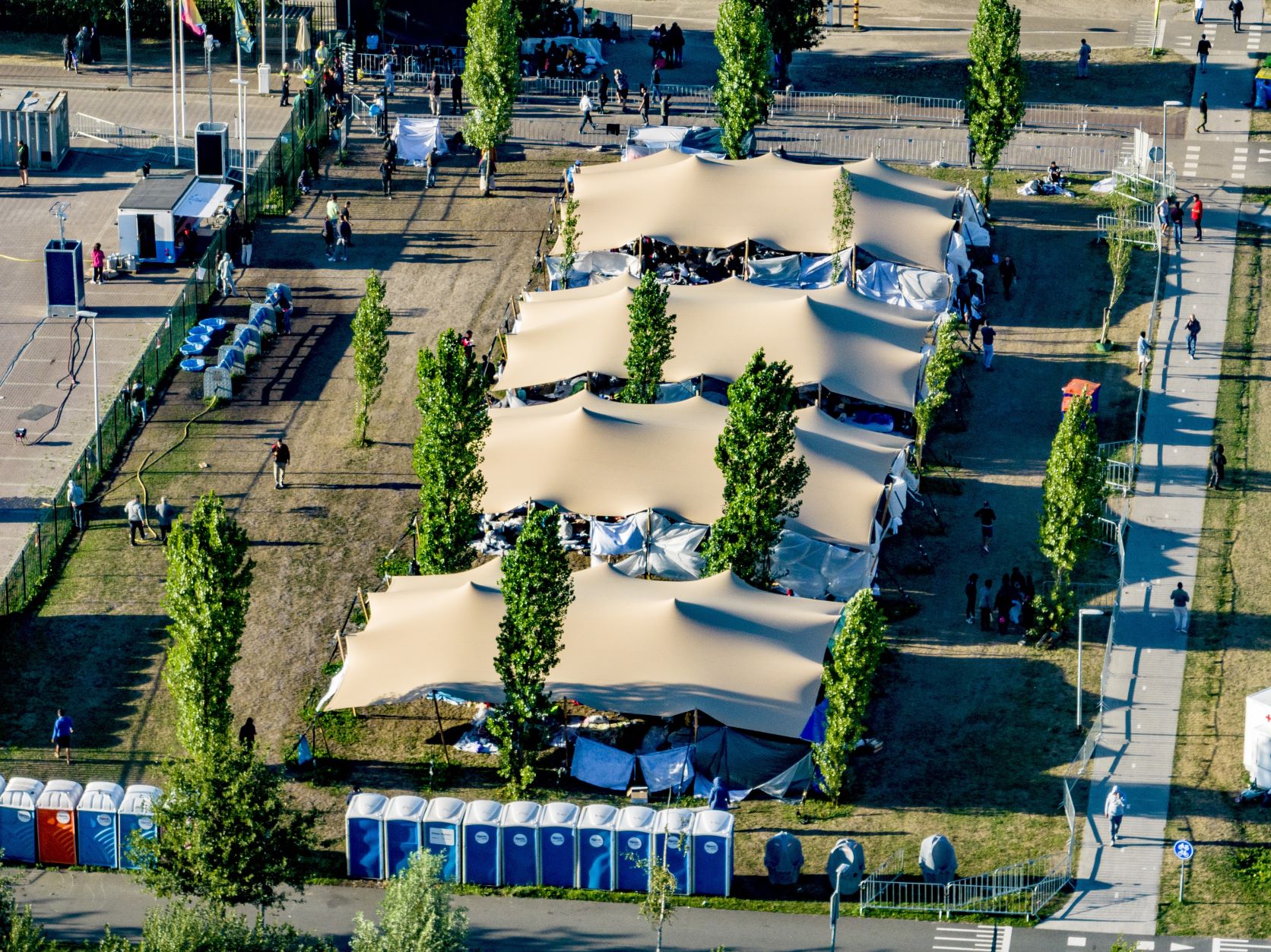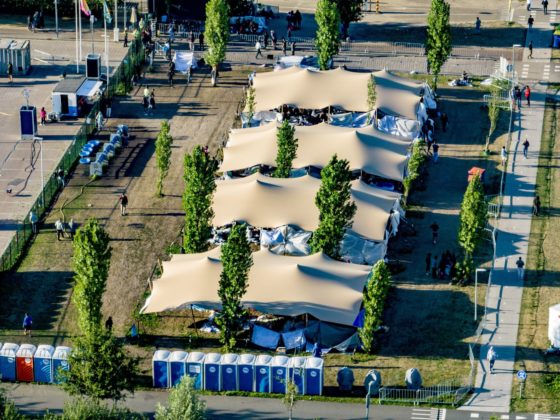Accommodation provided for asylum seekers waiting at Ter Apel


A handful of people voluntarily slept rough outside the Ter Apel asylum seeker reception centre last night, but enough beds were provided for others, reports NOS.
Following national and international concern about hundreds of people sleeping outdoors at the weekend in chilly weather and unsanitary conditions, more space has been made for asylum seekers.
Sixty people were able to overnight in waiting rooms belonging to Dutch immigration service IND, while fourteen unaccompanied children and several hundred others were taken in by a church organisation at 10 locations in Groningen and Drenthe. Around a hundred were taken to shelters in Stadskanaal and Zuidbroek.
For the first time in its history, emergency medical aid organisation Artsen zonder Grenzen (Médecins sans Frontières) was asked to step in last week as 700 people slept rough outside the centre, including women and children, describing the situation as a failure of policy, not a refugee crisis.
Last week, the government announced that it would tighten asylum policy, reneging on an agreement with Turkey, and saying only refugees with a home can bring their family – a measure criticised by the Dutch ombudsman for children.
Ter Apel is the first port of call for asylum seekers to register their claim and stay temporarily in accommodation for 2,000. But during the pandemic other refugee centres, where they would normally then move, have been closed. This, combined with the national housing shortage, has meant Ter Apel has run out of space.
A former military barracks in Zoutkamp will open in early September to take hundreds of asylum seekers and relieve the pressure on Ter Apel.
Thank you for donating to DutchNews.nl.
We could not provide the Dutch News service, and keep it free of charge, without the generous support of our readers. Your donations allow us to report on issues you tell us matter, and provide you with a summary of the most important Dutch news each day.
Make a donation